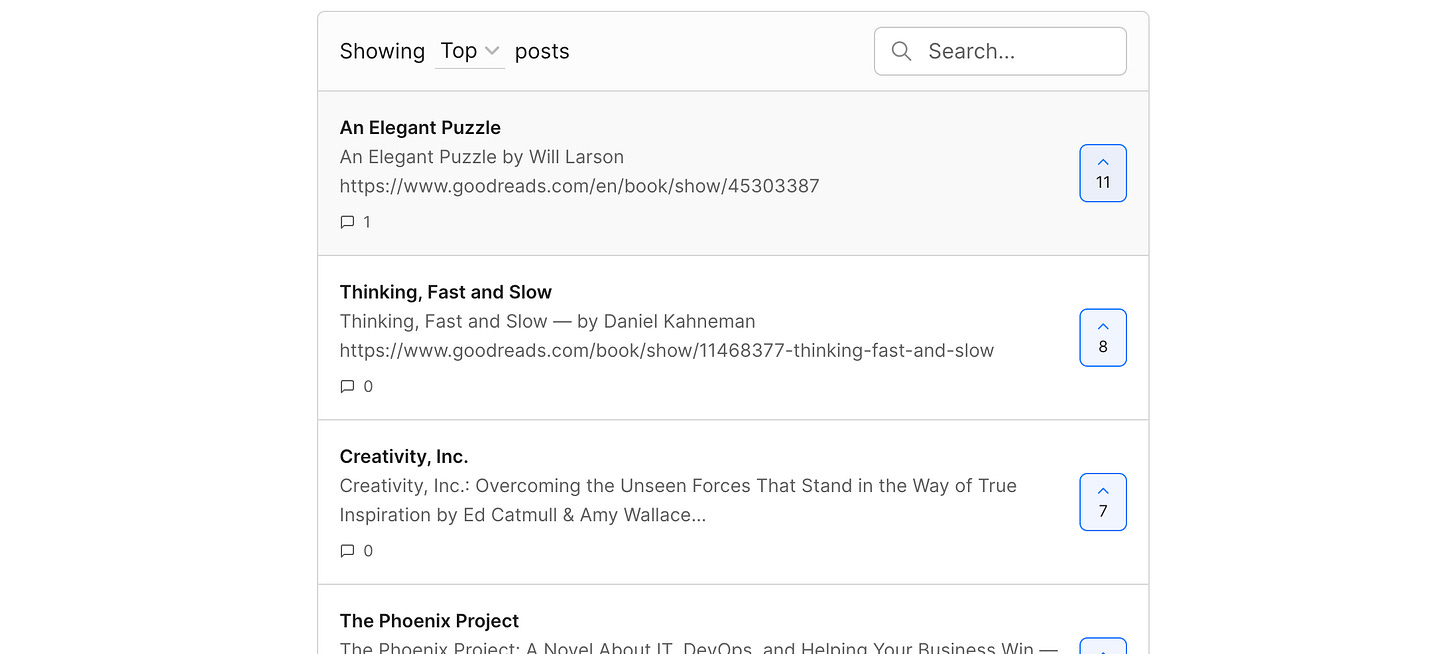How I Read Books 📚
A revised process that completely changed my reading habit
I have a complicated relationship with non-fiction books.
I have always read a lot — today, of course, as I do research for the newsletter, but even in the past — but not many books.
I believe we can trace the controversy back to 2013-2014. At that time, I was a young CTO, extremely hungry for good material. Newsletters and quality articles were less of a thing back then, so for your professional growth you mostly had… books.
And boy did they disappoint me. All the time.
Most of them seemed to me little more than glorified blog posts: the best ideas could fit ~3000 words, and were instead diluted into 50,000. So, for the following decade, you can count the business books I read on my hands.
Then, something surprising happened last year: I read 12 books.
I can’t stress enough how big of a change this was for me — 12 books is probably more than all the (business) books I had read until then.

So, this article is the story of how I unexpectedly became a book reader, why I enjoy doing so now, and the process that works for me.
Here is the agenda:
📚 Book Club(s) — how accountability changed everything for me.
📋 Using summaries — why top-down reading is the best reading.
📕 Reading the full book — why it is worth it and how I actually read.
✍️ Writing a review — clearing my thoughts and storing them for the eternity
🌱 Extracting notes — the last step which ties in to my note-taking workflow.
Let’s dive in!
📚 Book Clubs
Exactly one year ago we started a Book Club in the Refactoring community.
In the club, we pick a book every two months, read it on our own, and discuss it all together in a live community call at the end of the period. So, half of the books I read last year came from it (you can find the list at the bottom of this article).
The book club gave me two things:
🥇 Strong accountability — reading books is now literally part of my job. Book reviews also become newsletter articles, so there is no way I can give up on this.
🔍 Easy selection — for a long time I had a messy backlog of books I wanted to read, and choosing the next one always felt like a chore. The book club has a board where people can upvote entries, so every time we just pick the most voted one. Easy peasy.
The book club activity compounded nicely and unexpectedly with another facet of my life: my wife has always been a big reader. She keeps a book by her bed, and always reads a few pages before sleep.
This existing habit gave me the perfect anchor for my own, newfound, one — so I started doing the same, thus replacing the mindless scrolling on social media, and the blitz games on chess.com (which I would invariably lose).
After a while, this led to another surprise: my wife and I started talking about the books we were respectively reading. She had always told me about her books, but the fact that now I, too, was reading something, created more common ground and led to more interesting conversations.
It’s like another mini book club, even if we read different things.
Flywheels
So, reading for me has become an incredibly high leverage activity, which benefits multiple aspects of my life:
🎓 Learning — it makes me learn new things.
💬 Community — it makes the Refactoring community better.
✏️ Writing — it gives me things to write about in the newsletter.
🏡 Family — it even improves my relationship with my wife.
The lesson I learned here is to always try to create flywheels and synergies, so that 1+1=3.
If you have a habit you are trying to adopt and you are struggling with it, think of how you can get more value out of it. Can you do it with your friends & family? Can you make it useful for something else?
Now, this is all part of the why.
Another big change in my reading, though, has been in the how.
Process
As of today, I read books in four stages:
📋 I read the summary
📕 I read the full book
✍️ I write a review
🌱 I extract notes
This looks like a lot of work, but 1) I don’t do it for all books, and 2) for good books it’s 100% worth it.
Let’s go through each of these steps 👇




